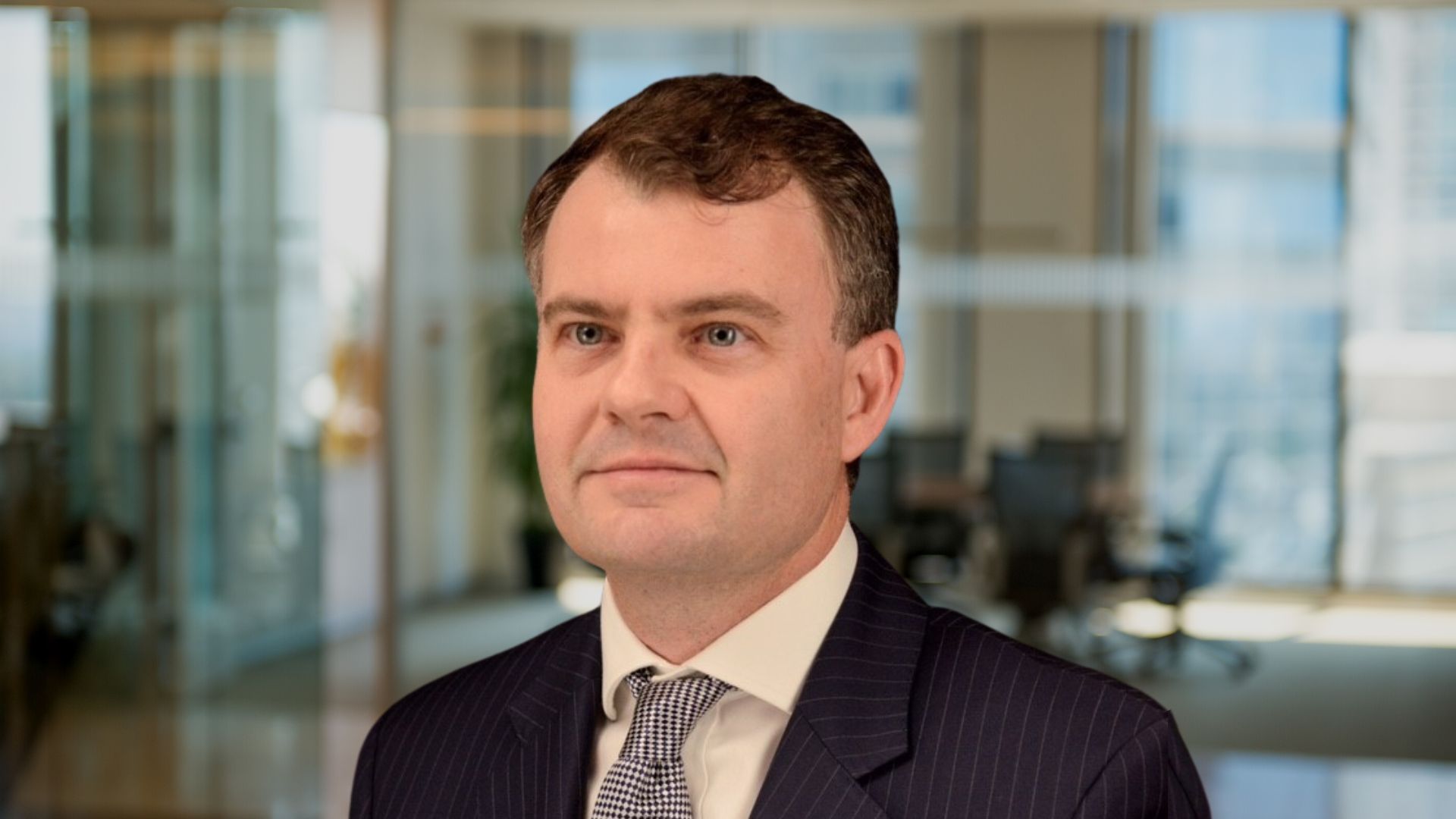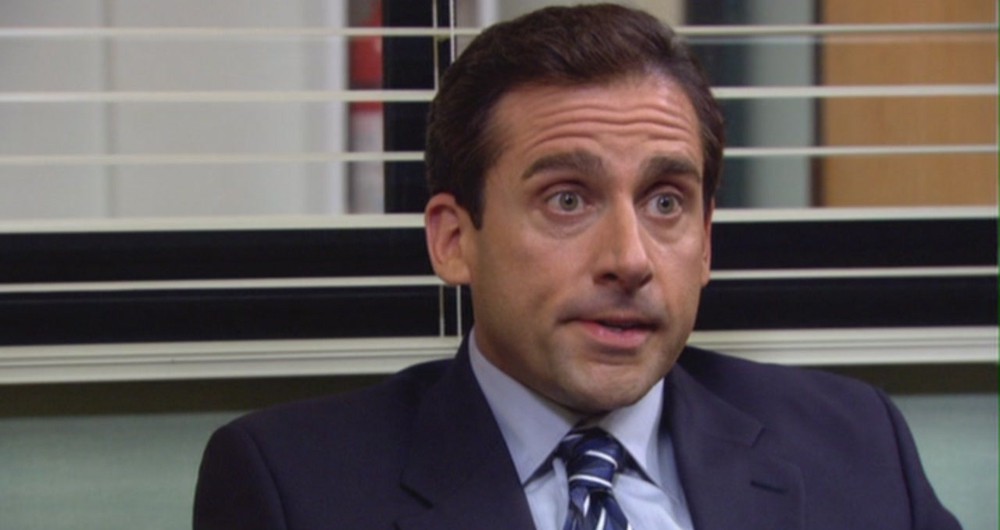Meet Emmet: The contrarian hedging his passions and portfolios
Managing risk and protecting against the downside is just as important as our search for alpha... But that's easier said than done (as we have truly seen this year).
For Emmet, the secret weapon he uses to protect his clients' hard-earned capital is hedging - particularly against commonly held assets like Australian equities and property (both of which have fallen painfully this year).
This way, he hopes to build portfolios that "provide the opportunity for higher returns with less risk, greater diversification, and when possible, at a reduced cost."
In this Meet the Adviser profile, Emmet calls on the stars of some of his favourite television shows and movies to highlight the need for diversification, efficient portfolio construction, avoiding portfolio bombs, and why he believes the world has now changed.
He also shares his two go-to funds for clients right now, three of his top positions (all easily accessible ETFs), and his personal ambitions for the future.
Financial adviser profile
- Name: Emmet Ryan
- Age: 45
- Current firm: Adviser One
- Years working as an adviser: 12
- Investment goals: To build portfolios that provide the opportunity for higher returns with less risk, greater diversification, and when possible at a reduced cost.
- Products used: ASX equities, Listed and Unlisted equity funds, ETFs, Cash and Currencies, Sovereign Bonds, Precious metals, and Alternative Assets.
- Biggest portfolio holding: At the individual stock level Amazon (although not held directly)
.jpg)
1. Why did you choose this profession and how did you get started as a financial adviser?
I saw an opportunity to help people after personally receiving very poor and very short-term focused investment advice during the Global Financial Crisis.
I started my career by joining a small advisory office before progressing to a large investment bank. I then decided to start my own advisory business as I didn’t like where certain parts of the industry were headed. In particular, I didn’t like the ‘whole of wallet’ strategy that the major financial institutions were promoting in having advisers constantly on the lookout to cross-sell their client’s additional products.
"Have you considered our credit card, mortgage, or insurance products?”, is the financial institution version of McDonald’s asking, “Would you like fries with that?”
I think there are advantages to not having all your assets with one institution, as when you do, you will invariably suffer from a ‘house view’ permeating your entire portfolio. This ‘house view’ is simply a set of assumptions or predictions on everything from future interest rates, economic growth, the price of oil, etc.
Collectively these forecasts of future events are almost certainly going to be wrong!
2. What do you believe makes you different from other advisers in the industry? Do you have a particular speciality or a unique approach?
I seek to employ simple ' hedging' strategies within portfolios to protect capital and often exclude certain asset classes my clients may already have significant exposure to elsewhere.
A practical example of a 'hedge' in everyday life is taking out home and contents insurance. But considering ways to insure your portfolio is of equal importance.
With the Australian property market being so highly-priced and such a large component of the Australian economy, investors should consider hedging part of their portfolio against a potential housing correction or a significant downturn in the Australian economy.
You would be forgiven for thinking a potential hedge against the Australian property market would entail taking short positions against the Big Four Australian banks, but I would caution against this, as this strategy has also been known as a 'widow maker' trade...
Instead, an example of some natural hedges for Australian investors would be global safe-haven assets such as Cash, Major Currencies, and Unhedged Global Government Bonds.
Focusing on total return has historically provided better longer-term performance than investing for yield or dividends in isolation. Consider the total return achieved by Amazon as a result of reinvesting their earnings (that they could have paid out in dividends).
3. Can you share your process for building portfolios and selecting investment products?
There is a scene in the movie The Bourne Identity where the central character played by Matt Damon (who is suffering from amnesia) discovers that he has a safe deposit box held within a private bank in Zurich. He decides to travel to Switzerland to investigate and finds cash in various currencies, multiple passports and IDs, contact lenses, a watch, and a handgun within the deposit box.
.jpg)
I think this provides a great metaphor for portfolio construction.
A portfolio should be prepared for various market conditions, enabling clients to make better decisions when unexpected events arise. The future is uncertain and investment markets are even more so.
When building portfolios, I like to include various asset classes that provide the potential to perform in various market conditions. The objective is to ultimately grow portfolios but also have the ability to protect wealth in periods of heightened uncertainty and market volatility.
The onset of the pandemic was an example of such a period where unhedged global bonds and gold performed very strongly as equity markets fell in value.
Selecting a mix of assets and considering how they will perform relative to each other is important if you are seeking a truly ‘balanced’ portfolio. If one part of the portfolio should underperform then another part has the potential to outperform.
4. Can you share two of your “go-to” funds with us?
1. JCB Global Bond Fund Unhedged
JCB Global is a global government bond fund that invests primarily in developed nation sovereigns and semi-government debt within core G7 Nations.
It's very difficult to see G7 Governments going broke as they can simply print or in 2022 create the funds to pay you back electronically.
On the other hand, corporations that issue bonds or credit can go broke. If you are willing to lend money to a company based on the business's fundamentals, in many cases you may be better off investing in the shares of the company instead.
2. VGI Partners Asian Investments (ASX: VG8)
VG8 is an Asian-based growth strategy fund that invests in longer-term growth businesses that generate their growth through exposure to Asian economies.
The developing markets are largely seen as the world's growth engine and the emerging middle class provides significant long-term structural growth themes.
The fund is listed and is currently trading at a significant discount to its net tangible asset (NTA) valuation. New investors are essentially able to buy $1 worth of investments for $0.80. .
5. How do you discover new managers and investment opportunities in a market saturated with products and issuers? What makes a manager stand out?
I generally seek out managers who are investing in sectors or regions that I have a positive long-term view of or that could benefit a result of an economic event. I am currently considering investing in Lazard Global Digital Health Fund which is a medical technology fund.
The fund has been sold off heavily in recent times but offers significant long-term potential growth: The short-term performance is unknown however I see great potential over the medium to longer term for disruptive technologies in health care.
When selecting a manager, I try and find previous market commentary or analysis and compare this with their performance. I also like to see managers who invest their own capital along with that of their investors or have 'skin in the game'.
6. A pitch deck from a fund manager arrives in your inbox, what happens next?
The first thing I look for is the investment mandate or universe of investments where the manager is permitted to invest. This is important for Australian investors as so many Australian funds can only invest domestically.
I remember a fund manager pitching Telstra (ASX: TLS) a number of years ago because of how many iPhones he was forecasting that Telstra was going to sell. Since then, Telstra shares have fallen by 30% in value and Apple (NASDAQ: AAPL) is up 500%!
The fund manager was correct about the iPhone but was unable to invest in Apple because that was not part of their mandate!
I also consider past performance and fees. Past performance - as the general disclosure advises - can’t be relied upon for future performance. However, past performance generally provides a reasonable guide if you believe in the same underlying investment thesis.
That said, funds with higher fees or management expense ratios (MERs) shouldn’t be immediately dismissed (as per the advice of the ‘shoeless’ investor).
I would much rather pay higher fees for specialist fund managers with expertise and access to a particular market or an asset class that runs a smaller size fund than pay lower fees to fund managers with a generic mandate and a massive fund.
It’s generally easier for small funds to outperform than large funds, especially when they grow to such a size that they start to replicate an index.
7. How would you describe your personal investment strategy?
My personal investment approach is very different from that of my clients as my time frames and risk tolerance is very different. Many advisers claim that they manage their clients’ money as they would their own. This is probably fine if the advisers are Berkshire Hathaway.
My appetite and tolerance for risk-taking are much higher. I would rather invest money for clients the way I would want someone else managing my family or my friend’s money.
8. Could you please share your top three holdings in percentage terms in your personal portfolio and tell me a bit about why you hold each of these positions?
1. BetaShares US Dollar ETF (ASX: USD): 15%

2. BetaShares US Treasury Bond 20+ Year ETF – Currency Hedged (ASX: GGOV): 15%
This fund provides exposure to high-quality long-dated US Treasury bonds. This is a very recent position. I have a contrarian view that deflation is a greater concern over the long term than inflation. Should interest rates return to their 40-year deflationary trend channel, this fund will perform very well.
Deflation has been driven primarily by growth in Debt, Ageing Demographics, and greater use of Disruptive technology. These trends have been amplified by the Global Pandemic.
3. BetaShares Geared US Equity Fund - Currency Hedged (ASX: GGUS): 15%
This fund provides a geared exposure to the US equity market. Along with a view that interest rates will eventually start to fall, I am comfortable adding this position after recent market weakness. This fund will perform well should equity markets start to recover.
9. Could you tell me about your worst investment? How did you deal with this falling position or fund?
My worst investment was Atlas Iron, formerly with the ticker ASX: AGO. The error was not understanding changes in sentiment and what drove the investment thesis, which in this case was the underlying commodity price.
AGO was backed by compelling broker research all the way down; however, I relied too heavily on certain fundamental analysis that was clearly irrelevant. I also used this great device called the 'internet' to find reasons to justify my holding on, and why I was actually correct and the market had it wrong!
As The Office's Michael Scott would say, “Wikipedia is the best thing ever. Anyone in the world can write anything they want about any subject. So you know you are getting the best possible information.”

The lesson: I held on way too long. Now I avoid anything that I can’t accurately predict what the underlying product will sell for.
If you have the ability to accurately predict commodity prices. Please invite me to your next yacht party. I imagine you have an exceptionally nice yacht!
10. What conversations are you most frequently having right now with clients? And what is your answer to these questions?
A common question has been: “When will markets return to normal?”
I would suggest that the next 10 years will be very different from the last 10, and a return to normal or how the markets performed pre-pandemic is unlikely.
As Succession's Logan Roy would say, “Nothing is a line. Everything everywhere is always moving forever. Get used to it!”

There is a requirement in my view to reassess strategies that have worked well over the last decade and ask yourself whether they will continue to perform over the next decade. Interest rates falling from 7.25% to 0.10% was a massive tailwind and wealth creator for so much of the Australian economy.
11. What are the most common mistakes you see in the portfolios that you inherit and how do you go about fixing them?
Too much reliance on the S&P/ASX 200 and specifically too much confidence in Australian shares' ability to continue to pay out dividends.
As above, THE WORLD HAS CHANGED as a result of the global pandemic, and many significant technological megatrends have been fast-tracked.
The Australian investment landscape is woefully underweight technology and future digital-based businesses (although all of the major global tech businesses have a significant presence within the Australian economy). The S&P/ASX 200 is less than 5% technology.
I much prefer global growth sectors such as technology and global growth regions such as developing markets. I see the next decade being extremely beneficial for global monopolies, especially in technology and the continued development of artificial intelligence or A.I.
After all, the average Australian frequents up to five global tech businesses (sometimes even all five) before they have had breakfast.
- With an Apple/Android device
- Alphabet/Google
- Meta/Facebook/Instagram/WhatsApp
- Microsoft
Many major Australian companies are clearly legacy businesses in nature, with an emphasis on 'bricks and mortar' operations that will face headwinds in an increasingly digital world.
Famed investor Stan Druckenmiller may have said it best. “No one wants to use the 4th best search engine or mapping app”.
When it comes to tech, the future may not be 'a winner takes all' scenario, but it will most likely be a winner takes most!
12. If you could change one thing about the industry so that it can better serve Australians, what would that be?
In my experience, the vast majority of advisers do the right thing for their clients. I would like to see an industry that prides itself however on calling out peers that are clearly fraudulent, and an industry that is confidently backed by regulators that are fast to act.
In recent times, the ability to claim that a product was ‘like’ something else, but in reality was nothing like it, causes particular concern.
An example is to suggest that a fund that ‘invests' in another ‘related’ fund and buys tropical islands as a tourism turnaround story is like a Term Deposit. Of course, it's not.
13. Can you share a personal passion or ambition you have for your future?
My personal passion or obsession is the game of golf. However, recently I have discovered a new passion - kitesurfing.
Kitesurfing is a wonderful alternative to golf and a natural ‘hedge’. The days when it is too windy or too hot to play golf are great days for kitesurfing. There are considerable overlaps when considering the elements such as wind direction and reading the ocean as opposed to reading greens.
Kitesurfing is difficult to learn and requires total concentration. I am by no means an expert... yet.
I have also observed similarities between the various kitesurfing techniques such as the ‘wind window’ and that of trading duration in fixed interest and the bond market, as you are required to move the kite to different parts of a curve to navigate and change direction. Kitesurfing is also not without risk, and everything everywhere is moving forever!
Did you enjoy Livewire's new Meet the Adviser series?
If you enjoyed hearing about Emmet's investing journey, please give this wire a 'like', and if you know someone who might enjoy the article, why not send them the link.
Access more interviews like this below:
Not already a Livewire member? Sign up today to get free access to investment ideas and strategies from Australia’s leading investors.
2 topics
4 stocks mentioned
1 fund mentioned

